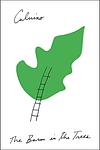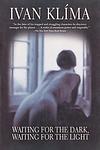The Greatest Czech, Italian "Satire" Books of All Time
Click to learn how this list is calculated.
This list represents a comprehensive and trusted collection of the greatest books. Developed through a specialized algorithm, it brings together 300 'best of' book lists to form a definitive guide to the world's most acclaimed books. For those interested in how these books are chosen, additional details can be found on the rankings page.
Genres
Satire is a genre of literature that uses humor, irony, and exaggeration to criticize and ridicule human vices, follies, and shortcomings. It is a form of social commentary that aims to expose the flaws and absurdities of society, politics, and culture. Satirical books often employ sarcasm, wit, and parody to challenge the status quo and provoke thought and reflection in readers. Satire can be both entertaining and thought-provoking, and it has been used throughout history as a powerful tool for social and political critique.
Countries
Date Range
Reading Statistics
Click the button below to see how many of these books you've read!
Download
If you're interested in downloading this list as a CSV file for use in a spreadsheet application, you can easily do so by clicking the button below. Please note that to ensure a manageable file size and faster download, the CSV will include details for only the first 500 books.
Download-
1. The Metamorphosis by Franz Kafka
The book tells the story of a man who wakes up one morning to find himself transformed into a giant insect. His transformation causes him to lose his job and become ostracized from his family, who are horrified and repulsed by his new form. As he grapples with his new reality, he becomes increasingly isolated and starts to lose his sense of humanity. The book explores themes of alienation, guilt, and identity, and is a profound examination of the human condition.
-
2. The Good Soldier Svejk by Jaroslav Hašek
"The Good Soldier Svejk" is a satirical novel set during World War I, following the story of a Czech soldier in the Austro-Hungarian army. Svejk, the protagonist, is a simple-minded, good-natured man who is frequently arrested for bungling jobs due to his apparent idiocy. Despite his constant run-ins with authority, Svejk manages to maintain his cheerful disposition and even takes advantage of his perceived stupidity to manipulate the system. The book offers a humorous and critical perspective on the absurdity of war and the incompetence of military bureaucracy.
-
3. Confessions of Zeno by Italo Svevo
"Confessions of Zeno" is a satirical, semi-autobiographical novel that follows the life of Zeno Cosini, a neurotic Italian businessman, as he tries to quit smoking. The book is presented as a diary, written at the suggestion of Zeno's psychoanalyst, and it details Zeno's thoughts on his health, his family, his business ventures, and his infatuation with a beautiful woman. Throughout the story, Zeno's attempts to quit smoking serve as a metaphor for his struggles with his personal weaknesses and his quest for self-understanding.
-
4. If on a Winter's Night a Traveller by Italo Calvino
The novel is a postmodernist narrative that follows the adventures of the reader, who is trying to read a book called "If on a Winter's Night a Traveller." However, the reader keeps encountering obstacles that prevent him from finishing the book, including printer's errors, censorship, and interruptions from other characters. The story is interspersed with the beginnings of ten different novels, each interrupted at a moment of suspense. The book is a meditation on reading, writing, and the nature of narrative itself.
-
5. Amerika by Franz Kafka
This novel tells the story of a young immigrant, Karl Rossmann, who after an unfortunate incident is sent by his parents to America. The narrative follows his journey through a strange new world, where he encounters a variety of eccentric characters and experiences a series of bizarre and often surreal situations. Throughout his journey, the protagonist struggles with feelings of alienation and the harsh realities of the American Dream, while trying to navigate the complexities of life in a foreign land.
-
6. The Baron in the Trees by Italo Calvino
"The Baron in the Trees" tells the story of a young Italian nobleman who, in a fit of rebellion, climbs a tree and vows never to touch the ground again. He spends the rest of his life living in the treetops, observing the world from above, and engaging in adventures with bandits, revolutionaries, and lovers. Despite his self-imposed exile, he becomes a symbol of freedom and individuality, ultimately influencing the course of European history.
-
7. The Book of Laughter and Forgetting by Milan Kundera
This novel is a blend of fiction, autobiography, and philosophical musings that explores the nature of forgetting, the power of laughter, and the struggle for personal and political freedom. Set against the backdrop of the political turmoil in Czechoslovakia in the 20th century, it follows the interconnected stories of various characters, including a man who is expelled from the Communist Party, a young woman in love with a man whose father was a political prisoner, and a couple who flee to America. Throughout, the book delves into the ways in which personal and collective memories shape identity and history.
-
8. The Joke by Milan Kundera
"The Joke" follows the life of Ludvik Jahn, a man expelled from the Czechoslovak Communist Party, his university, and the army for a harmless joke he sends in a postcard to a girlfriend. The narrative explores his life before, during, and after his punishment, and his attempts to exact revenge on those who wronged him. Set against the backdrop of the Prague Spring and the Soviet Invasion, the novel delves into the themes of political satire, the absurdity of totalitarianism, and the individual's struggle against an impersonal and oppressive system.
-
9. War with the Newts by Karel Čapek
The novel is a satirical science fiction tale that explores the discovery of a species of intelligent giant newts. When humans realise they can exploit these creatures for economic gain, they are enslaved and used for labor and military purposes. The newts ultimately rebel, leading to a global war. The book serves as a critique of various political, economic and ideological systems, including colonialism, capitalism and fascism.
-
10. The Engineer of Human Souls by Josef Škvorecký
The novel is a semi-autobiographical narrative of a Czechoslovakian writer who has become a professor at a Canadian university, teaching American literature. The narrative switches between his current life in Canada and his memories of the past in Czechoslovakia, including the Nazi occupation and the Communist regime. The book presents a complex portrayal of the life of an intellectual in exile and the challenges of cultural assimilation, while also exploring themes of love, politics, and the power of literature.
-
11. That Awful Mess On Via Merulana by Carlo Emilio Gadda
This novel is a complex and richly detailed exploration of a crime in 1920s Rome, where an investigation into a theft and a brutal murder in an apartment building on Via Merulana becomes a sprawling narrative that delves into the social, political, and cultural fabric of Italy. The detective in charge of the case navigates through a maze of clues, red herrings, and eccentric characters, revealing not just the underbelly of Roman society but also the inherent chaos and absurdity of life. The narrative is characterized by its linguistic inventiveness, with a mix of literary Italian, Roman dialect, and technical jargon, making it a challenging yet rewarding read that transcends the boundaries of the detective genre to offer a profound commentary on the human condition.
-
12. Waiting for the Dark, Waiting for the Light by Ivan Klíma
The novel is set in the twilight of Communist rule in Czechoslovakia and follows the life of a television cameraman named Pavel. Despite his dreams of becoming a filmmaker and capturing the truth, he is trapped in a job that requires him to distort it. As the regime starts to crumble, Pavel grapples with the opportunities and challenges that freedom brings. He is forced to confront his past, his moral choices, and his dreams, leading to a deep exploration of the human condition and the struggle for personal and artistic freedom.
-
13. Accidental Death Of An Anarchist by Dario Fo
In this satirical farce, an eccentric and quick-witted man, referred to as the Maniac, infiltrates a police station where an anarchist railway worker's death is being investigated. The authorities claim the anarchist died by suicide, having jumped out of a window during an interrogation. However, the Maniac cleverly impersonates various officials, manipulates the policemen, and exposes the absurdities and contradictions in their stories, suggesting that the anarchist's death was not an accident but a cover-up of police brutality. The play uses sharp humor and slapstick to critique corruption and the misuse of power within the establishment, ultimately questioning the integrity of the police and the justice system.
-
14. The Servant Of Two Masters by Carlo Goldoni
The play is a classic Italian comedy that revolves around the clever and resourceful Truffaldino, who seeks to serve two different masters simultaneously in the hope of doubling his income. The ensuing plot is a whirlwind of mistaken identities, love triangles, and comedic confusions. As Truffaldino scrambles to keep his dual employment a secret, the characters are entangled in a series of humorous situations involving love-struck young lovers, a feisty soubrette, and a pair of stern fathers. The play culminates in a series of revelations and reconciliations that restore social order and conclude with festive celebrations.
-
15. The Mandrake by Niccolo Machiavelli
"The Mandrake" is a satirical play that explores themes of corruption, deceit, and the manipulation of social norms. Set in Renaissance Italy, the story revolves around a young man who, desperate to win the affections of a beautiful but married woman, concocts a complex scheme involving a love potion derived from the mandrake root. With the help of a cunning rascal and a corrupt priest, the plan unfolds with a series of deceptions and moral compromises, ultimately questioning the true nature of virtue and vice in a society rife with hypocrisy. The play delves into the darker aspects of human behavior, using wit and humor to expose the lengths to which individuals will go to satisfy their desires.
-
16. The Skin by Curzio Malaparte
This book is a vivid and harrowing account of the liberation of Naples by the Allies during World War II, as seen through the eyes of the author, who serves as a liaison officer with the American forces. It delves into the moral and physical decay that war brings to a city and its inhabitants, exploring themes of survival, the price of liberation, and the complex relationship between conquerors and the conquered. Through a series of grotesque, often shocking episodes, the narrative portrays the desperation and degradation of a society stripped of dignity, where human skin becomes a metaphor for the erosion of humanity itself. The work is a powerful, if unsettling, examination of the human condition under the extreme pressures of war, betrayal, and occupation.
Reading Statistics
Click the button below to see how many of these books you've read!
Download
If you're interested in downloading this list as a CSV file for use in a spreadsheet application, you can easily do so by clicking the button below. Please note that to ensure a manageable file size and faster download, the CSV will include details for only the first 500 books.
Download














